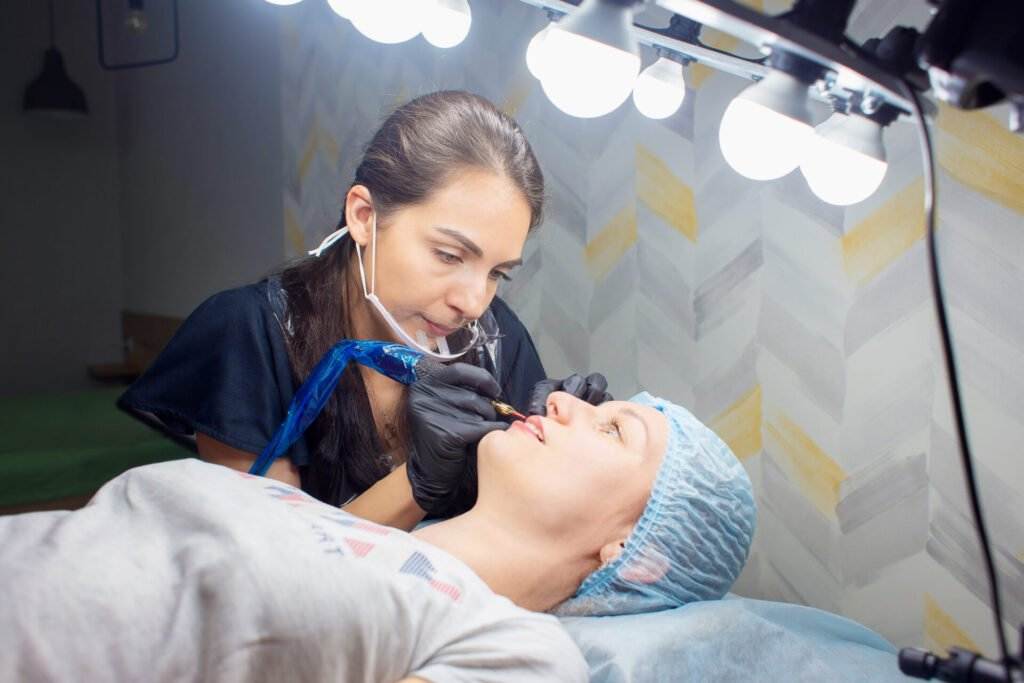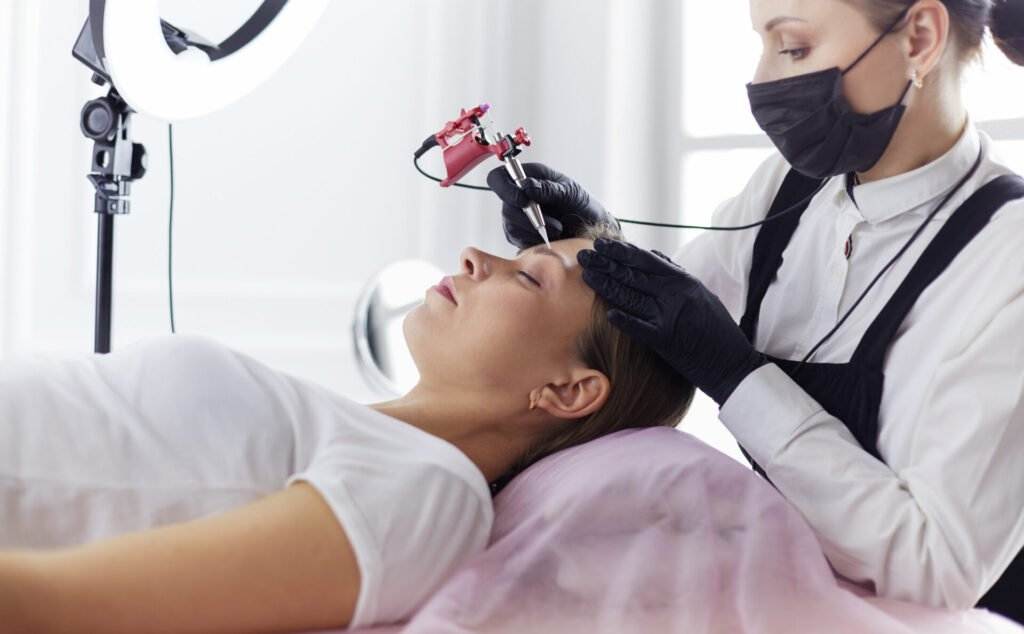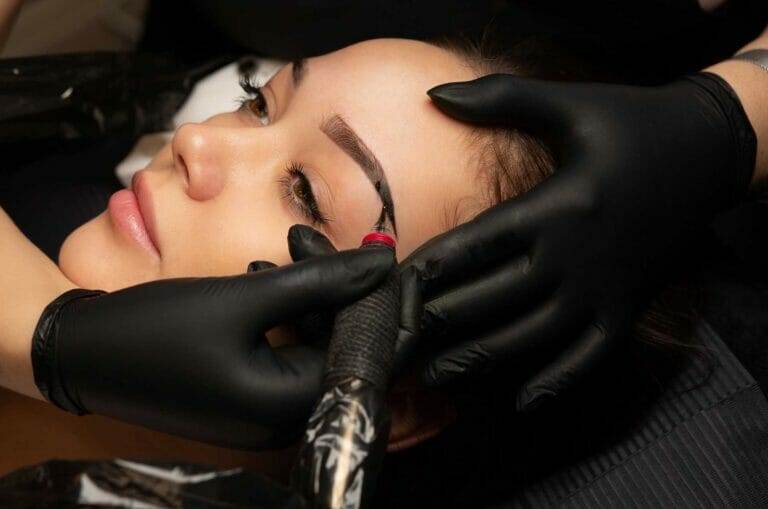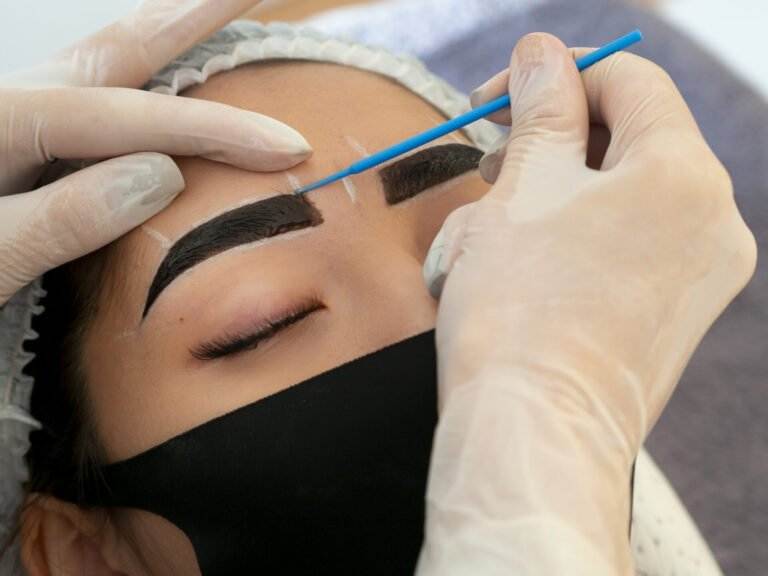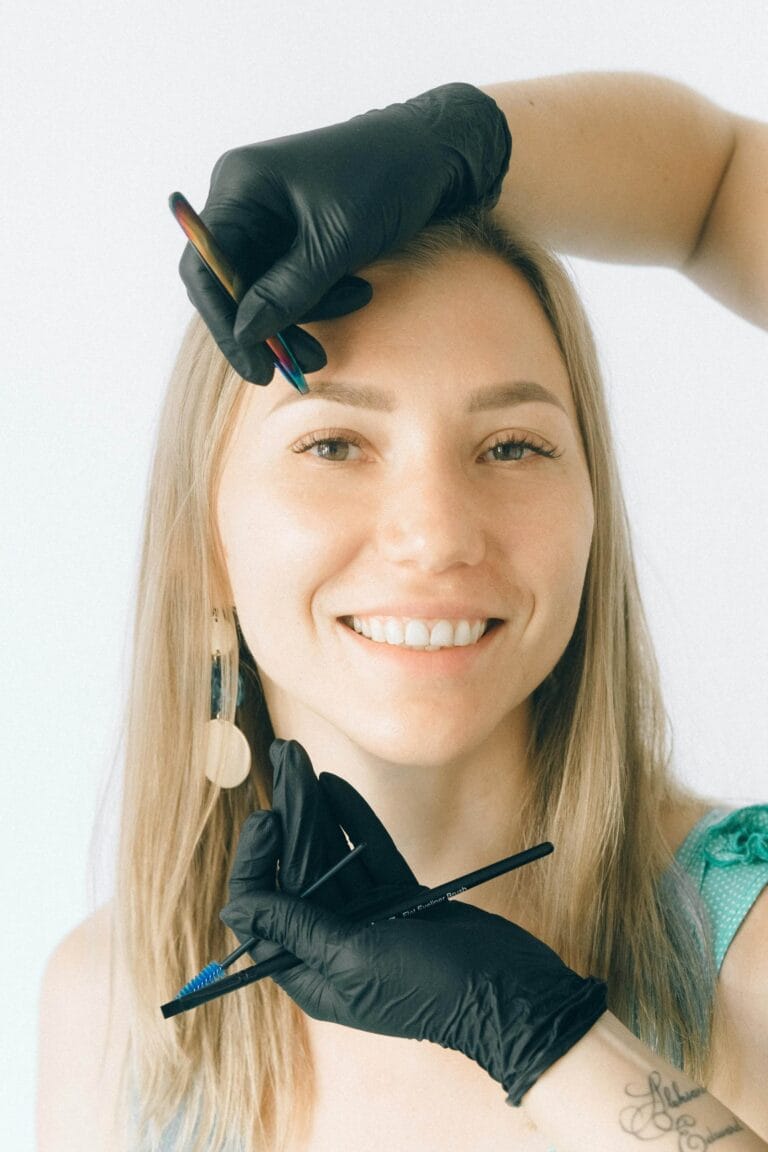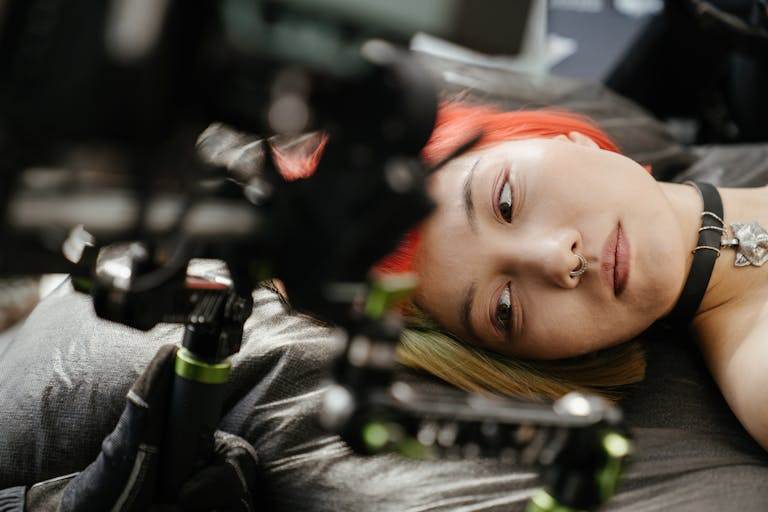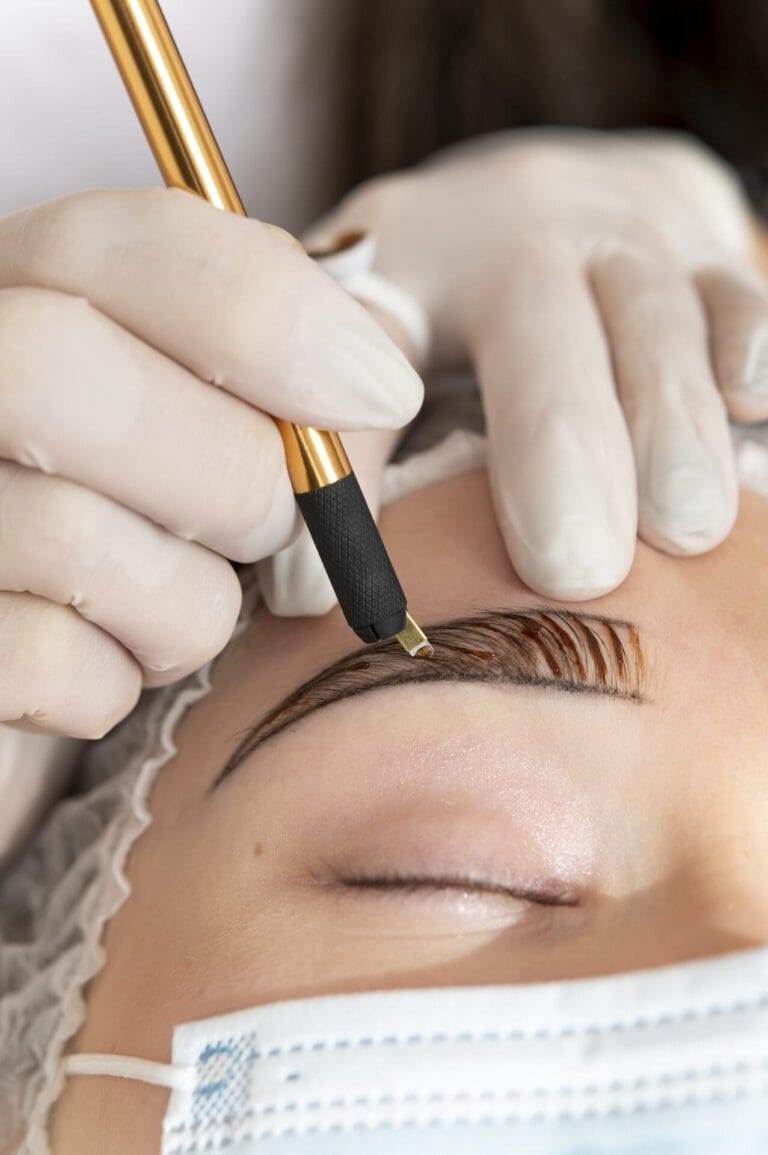What is Cosmetic Tattooing?
Cosmetic tattooing, often referred to as permanent makeup, is a modern beauty procedure that enhances facial features by implanting pigment into the skin. This technique is an increasingly popular choice for individuals who want to simplify their beauty routines. Common procedures include:
- Eyebrow tattooing: Creating defined and fuller eyebrows.
- Eyeliner tattooing: Adding depth and shape to the eyes.
- Lip tinting: Enhancing the natural color and shape of the lips.
Many people turn to cosmetic tattooing to save time in their daily makeup routine or to address issues such as hair loss due to aging or medical conditions. The art of cosmetic tattooing requires skilled professionals who understand color theory, skin types, and individual client needs, ensuring that the results are tailored and natural-looking.
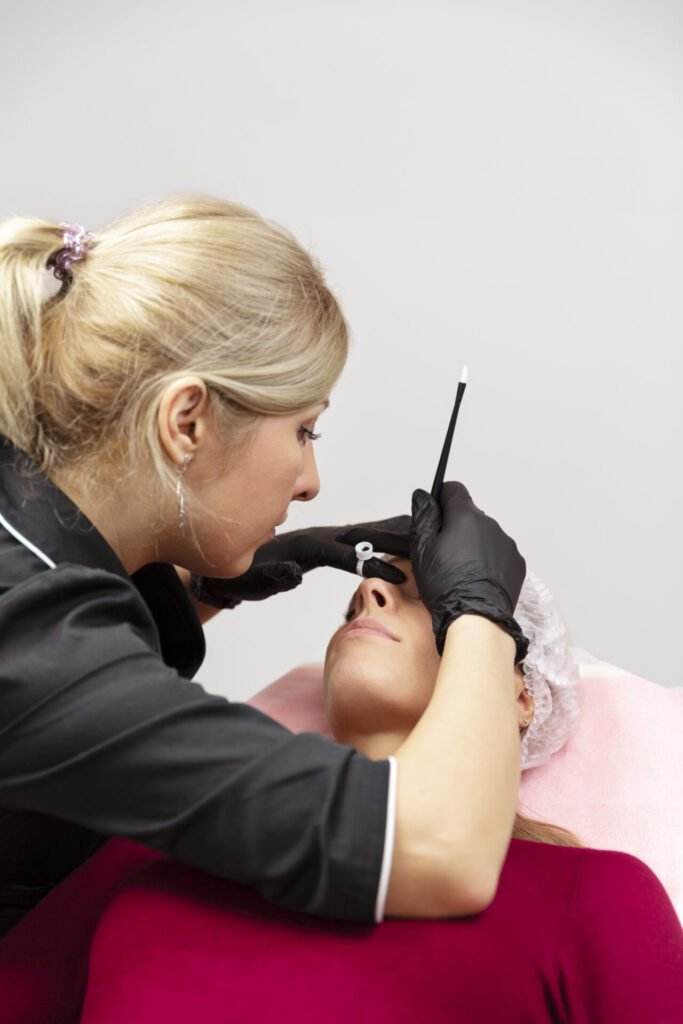
Importance of Proper Aftercare
The significance of proper aftercare cannot be overstated when it comes to cosmetic tattooing. Immediately following the procedure, the skin undergoes a healing process, which is pivotal in achieving the desired long-lasting results. Neglecting aftercare can lead to complications such as:
- Infection: Open skin can be vulnerable without appropriate care.
- Fading pigment: Insufficient healing may result in uneven or light patches.
- Unwanted results: Lack of adherence to aftercare may alter the intended outcome.
To maximize the longevity of the cosmetic tattoo, clients should prioritize their aftercare routine. This involves following specific post-treatment guidelines that include keeping the area clean, avoiding excessive sun exposure, and using recommended products. It is essential for individuals to recognize that taking care of their cosmetic tattoo is as crucial as the procedure itself, setting the stage for beautiful and lasting results.
Initial Aftercare Steps
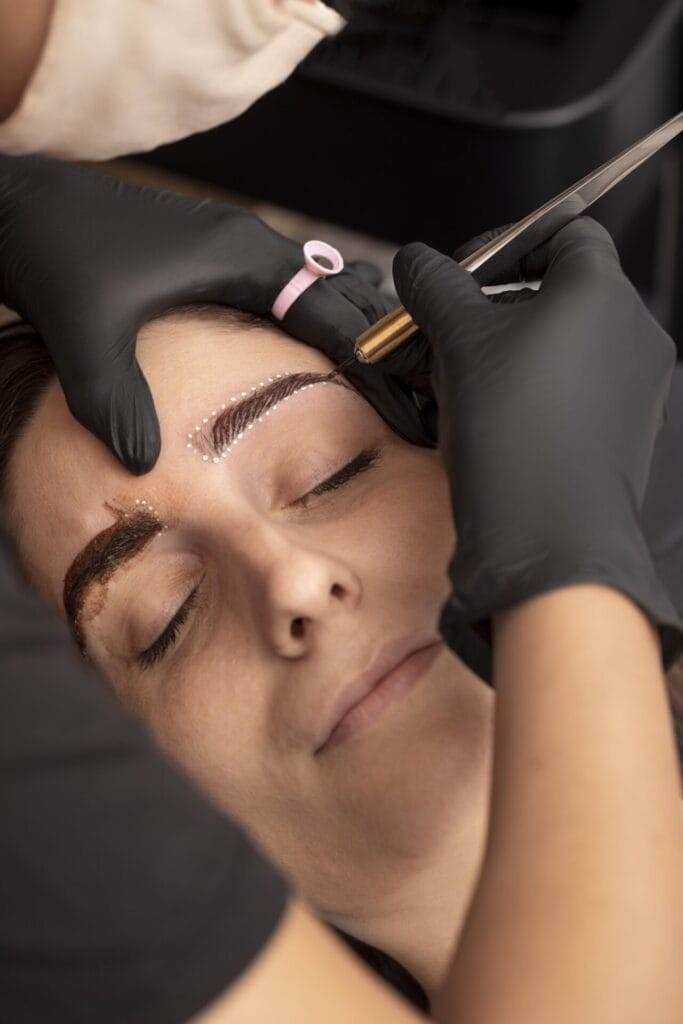
Immediate Post-Treatment Care
Following a cosmetic tattoo procedure, in the first few hours, attentive aftercare is essential. The skin is particularly sensitive and requires gentle handling to support the healing process. Here are some immediate aftercare steps to consider:
- Keep the area clean: Use a sterile saline solution or an antiseptic wipe recommended by your artist to gently cleanse the area.
- Avoid touching the treated area: Resist the urge to scratch or rub the tattoo; this can lead to irritation or infection.
- Limit makeup application: Do not apply any makeup on the treated area for at least one week. This gives the skin a chance to heal without any additional substances that could interfere with the process.
Patients often note that adhering to these steps makes a significant difference in their healing experience and the outcome of the tattoo.
Avoiding Water and Sun Exposure
In the days following the procedure, it’s crucial to avoid water and sun exposure. Water, in particular, can disrupt the healing process, leading to fading and uneven color:
- No swimming or soaking: Refrain from swimming pools, hot tubs, or any activities that involve submerging the area in water for at least two weeks.
- Keep it dry: When washing your face, use a soft cloth to gently cleanse around the tattooed area without directly applying water to it.
Additionally, sun exposure can have detrimental effects on newly tattooed skin:
- Use a broad-brimmed hat: This shields your face from harmful UV rays while the tattoo heals.
- Avoid tanning beds: They can cause irritation and significantly damage the pigment.
By being conscientious during the initial recovery period, individuals can ensure their cosmetic tattoos heal well, resulting in stunning, long-lasting effects.
Long-Term Aftercare Tips
Moisturizing and Hydration
Maintaining the appearance of cosmetic tattoos in the long run requires a dedicated aftercare routine, starting with proper moisturizing and hydration. Well-hydrated skin promotes a vibrant and lasting tattoo. Here’s how to incorporate effective moisturizing habits into your routine:
- Choose the right products: Opt for gentle, fragrance-free moisturizers or ointments specifically designed for tattoo care. Look for ingredients such as aloe vera, vitamin E, and hyaluronic acid.
- Hydrate your skin: Apply moisturizer twice daily to keep the tattooed area supple and prevent dryness or flakiness. This is especially important during seasonal changes when skin can become dehydrated.
- Internal hydration: Don’t forget to drink plenty of water! Staying hydrated from within not only helps the skin but enhances overall health and wellness.
Many individuals find that committing to a consistent moisturizing routine greatly extends the vibrancy of their cosmetic tattoos, making it well worth the effort.
Touch-Up Recommendations
Touch-ups are essential for keeping cosmetic tattoos looking fresh and vibrant over time. While the initial procedure might achieve satisfying results, fading can naturally occur due to a variety of factors, including sun exposure and skincare products. Here are some tips regarding touch-ups:
- Schedule regular appointments: Most artists recommend scheduling a touch-up session about 6 to 12 months after the initial treatment. This helps keep the pigment looking crisp.
- Listen to your skin: If you notice significant fading or unevenness in your tattoo, don’t wait for the scheduled appointment. Discuss concerns with your artist to determine the best time for a touch-up.
- Track changes: Maintain a journal of your tattoo’s appearance. Document when you notice fading and how it responds to your aftercare routine.
By embracing these long-term aftercare tips, individuals can ensure their cosmetic tattoos remain as striking and vibrant as the day they were applied. With a little effort, the benefits of well-cared-for tattoos can last for years.
Avoiding Common Mistakes
Over-Exposure to Sun
One of the most significant mistakes individuals make after receiving cosmetic tattoos is overexposing their sensitive skin to sunlight. Ultraviolet (UV) rays can lead to fading and distortion of the pigments, which means your beautiful work could diminish over time. To avoid this common pitfall, consider the following strategies:
- Use Sunscreen: Applying a broad-spectrum sunscreen with SPF 30 or higher is vital whenever you are outdoors. Look for waterproof formulations, especially for areas prone to exposure.
- Seek Shade: During peak sun hours, typically between 10 a.m. and 4 p.m., try to stay in the shade as much as possible. A stylish hat can serve as both protection and a fashion statement!
- Avoid Tanning Beds: These devices expose the skin to concentrated UV light, which can be more harmful than direct sunlight, leading to quicker fading of your tattoo.
Realizing the impact of UV exposure can help preserve the appearance of your cosmetic tattoos longer.
Neglecting Follow-Up Appointments
Another critical mistake that many make is neglecting follow-up appointments. While the initial procedure may yield satisfactory results, the importance of check-ins with your artist can’t be understated. Here are some reasons why:
- Assess Healing: Follow-up visits allow the artist to evaluate how well the tattoo has healed and whether any touch-ups are needed.
- Address Concerns: If you notice any issues like fading or unevenness, addressing them sooner through an appointment can prevent permanent alterations to the design.
- Understand Changes: As your skin ages, its texture and tone can shift. Regular appointments can help you adjust your tattoo over time to keep it looking ideal.
By avoiding these common mistakes—protecting your tattoo from sun exposure and prioritizing follow-up appointments—individuals can maximize the longevity and beauty of their cosmetic tattoos, ensuring they maintain their desired look for years to come.
Products to Enhance Healing
Recommended Ointments and Creams
Selecting the right products is a cornerstone of ensuring your cosmetic tattoo heals properly and maintains its luster. Aftercare ointments and creams can significantly influence the healing process, so it’s essential to use those specifically formulated for tattoo care. Here are some recommendations:
- Tattoo-specific ointments: Look for brands that are well-reviewed and known for their effectiveness in healing tattoos. These ointments often contain natural ingredients like calendula and chamomile, which soothe the skin.
- Fragrance-free moisturizers: Products that are free from harsh fragrances and chemicals help minimize irritation on the sensitive skin post-treatment.
- Healing balms: Consider using balms enriched with vitamins A and E, as they promote skin regeneration and can enhance the healing process.
Many individuals find that investing in high-quality aftercare products yields a significant improvement in the longevity and appearance of their cosmetic tattoos.
Sunscreen and SPF Protection
As previously discussed, protecting your cosmetic tattoo from the sun is vital, and this is where a good sunscreen becomes indispensable. Incorporating SPF protection into your daily skincare routine ensures that your tattoo stays vibrant without suffering from unwanted fading or discoloration. Here are some tips on selecting the right sunscreen:
- Broad-spectrum protection: Always opt for a sunscreen that offers broad-spectrum UVA and UVB protection. This not only guards your tattoo but also helps protect your skin from other lasting effects of sun exposure.
- SPF 30 or higher: A minimum SPF rating of 30 is ideal, especially for areas where the tattoo is prominently located. This strength balances protection without feeling too heavy.
- Water-resistant formulas: If you’re engaging in activities like swimming, consider water-resistant options that can withstand exposure while still holding up against sweat and moisture.
By integrating recommended ointments and reliable sunscreen into the aftercare regime, individuals can significantly enhance the healing process and maintain the beauty of their cosmetic tattoos for the long term. Preventive self-care now translates into a lasting investment in your appearance.
Lifestyle Adjustments for Longevity
Impact of Diet and Exercise
When it comes to ensuring your cosmetic tattoos last longer and maintain their vibrancy, lifestyle adjustments in terms of diet and exercise can play a surprising role. A well-balanced diet and regular physical activity contribute to overall skin health and healing.
- Nourishing foods: Incorporate plenty of fruits, vegetables, and healthy fats into your diet. Foods rich in antioxidants (like berries and leafy greens) and omega-3 fatty acids (found in fish and walnuts) can promote skin repair and regeneration.
- Stay Hydrated: Drinking ample water daily supports hydration from within, improving skin elasticity and overall health. Aim for at least 8 glasses a day, or more if you’re active.
- Moderate exercise: Regular physical activity encourages blood circulation, which helps deliver necessary nutrients to the skin during the healing process. However, be cautious—excessive sweating or intense workouts immediately after getting a tattoo can lead to irritation.
Individuals often notice that a few adjustments in their everyday habits can result in noticeable improvements in how their skin looks and feels, including their tattoos.
How Sleep Affects Healing
Never underestimate the power of a good night’s sleep! Sleep plays a crucial role in the body’s healing processes, including that of your skin and cosmetic tattoos.
- Increased recovery time: During deep sleep, the body works hard to repair and regenerate skin cells. Aim for 7-9 hours of quality sleep each night to allow your body ample time to heal.
- Creating a restful environment: Make your bedroom conducive to sleep by keeping it dark, quiet, and comfortable. Consider using relaxation techniques such as meditation or gentle yoga before bedtime to help wind down.
- Avoiding sleep disturbances: If you frequently turn in late or have irregular sleeping patterns, your skin may not get the recuperation it needs, potentially leading to issues with your tattoo.
Adjusting your lifestyle by prioritizing diet, exercise, and sleep can significantly enhance the longevity and appearance of your cosmetic tattoos. A little focus on self-care goes a long way in ensuring you enjoy your tattooed beauty for years to come.
Professional Recommendations
Consultations with Experienced Artists
When it comes to cosmetic tattooing, the importance of consulting with an experienced artist cannot be overstated. The relationship between a client and their artist forms the foundation for achieving exceptional results. A personalized consultation provides an opportunity to discuss specific goals, preferences, and any concerns about the procedure. Here are some tips to ensure you make the most of your consultation:
- Research beforehand: Before booking a consultation, take the time to review artists’ portfolios, focusing on their work that aligns with your desired outcome.
- Prepare questions: Bring a list of questions regarding techniques, expected results, aftercare, and the artist’s experience. It’s crucial to understand what to expect moving forward.
- Discuss your skin type: Inform the artist of your skin type and any relevant medical conditions. This information allows them to tailor their techniques and product recommendations to suit your needs.
Feeling confident about your artist’s skills and approach sets the stage for a successful tattooing experience.
Follow-Up Communication with the Artist
Once the treatment is complete, establishing ongoing communication with your artist is equally essential. Follow-up communication serves to address any concerns, track the healing process, and make necessary adjustments. Here are some best practices for maintaining this connection:
- Schedule regular check-ins: Don’t hesitate to reach out to your artist after the procedure. Maintaining open lines of communication can lead to insights on how your tattoo is healing and recommendations for touch-ups.
- Share observations: If you notice any discrepancies or concerns during the healing process, promptly discuss them with your artist. They can provide guidance on how to address these issues effectively.
- Seek advice on touch-ups: Artists can offer valuable advice on when to schedule touch-ups, taking into account your individual healing and fading patterns.
By engaging in consultative conversations before and after the process, clients can ensure that they receive personalized care, leading to beautiful, long-lasting results from their cosmetic tattoos.

